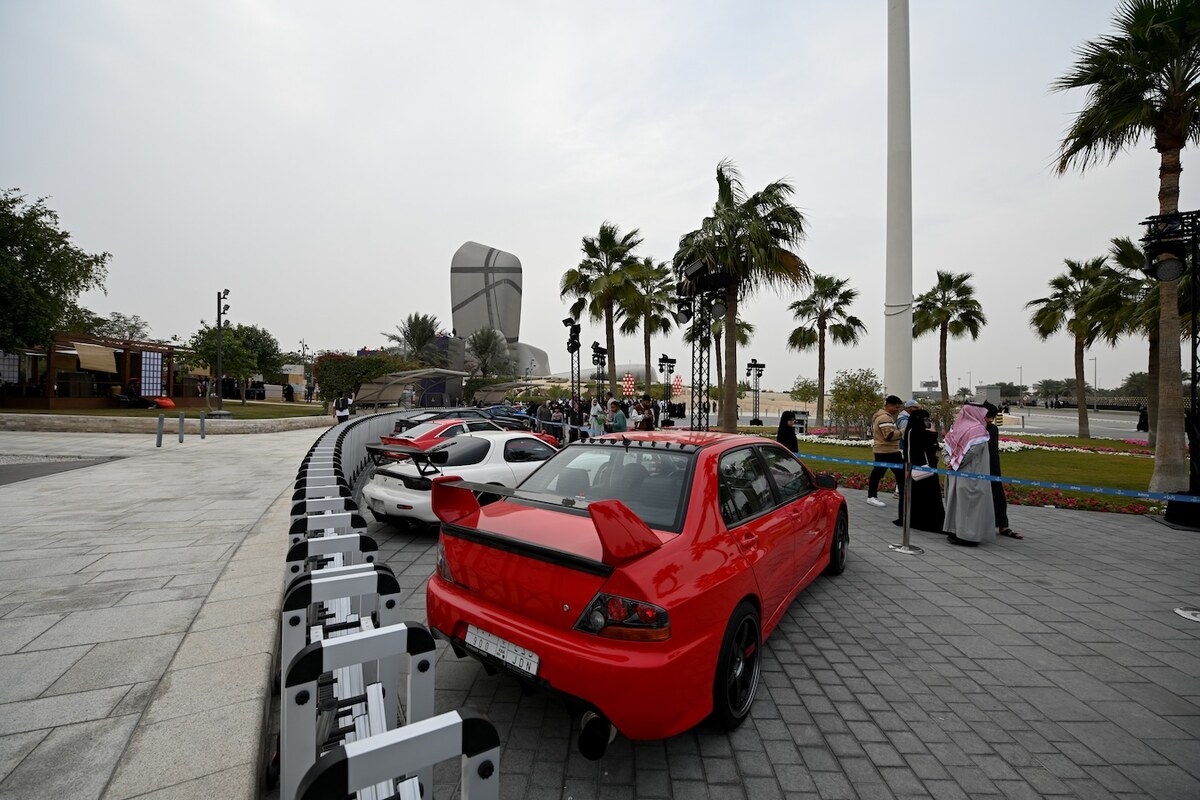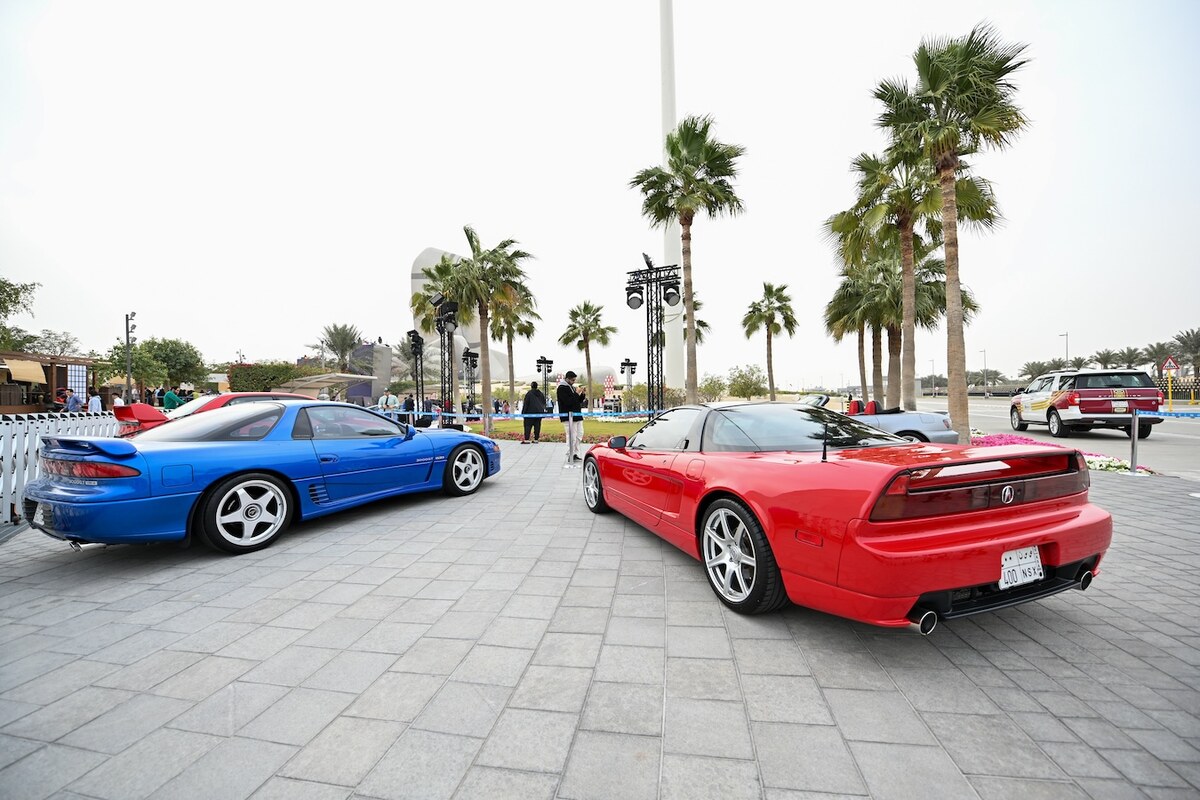MALMO, Sweden: Swiss singer Nemo won the 68th Eurovision Song Contest early Sunday with “The Code,” an operatic pop-rap ode to the singer’s journey toward embracing a nongender identity.
Switzerland’s contestant beat Croatian rocker Baby Lasagna to the title by winning the most points from a combination of national juries and viewers around the world. Nemo, 24, is the first nonbinary winner of the contest that has long been embraced as a safe haven by the LGBT community. Nemo is also the first Swiss winner since 1988, when Canadian chanteuse Celine Dion competed under the Swiss flag.
“Thank you so much,” Nemo said after the result from Saturday’s final was announced soon after midnight. “I hope this contest can live up to its promise and continue to stand for peace and dignity for every person.”
At a post-victory news conference, Nemo expressed pride in accepting the trophy for “people that are daring to be themselves and people that need to be heard and need to be understood. We need more compassion, we need more empathy.”
Nemo’s victory in the Swedish city of Malmo followed a turbulent year for the pan-continental pop contest that saw large street protests against the participation of Israel that tipped the feelgood musical celebration into a chaotic pressure cooker overshadowed by the war in Gaza.
Hours before the final, Dutch competitor Joost Klein was expelled from the contest over a backstage altercation that was being investigated by police.
Nemo — full name Nemo Mettler — bested finalists from 24 other countries, who all performed in front of a live audience of thousands and an estimated 180 million viewers around the world. Each contestant had three minutes to meld catchy tunes and eye-popping spectacle into performances capable of winning the hearts of viewers. Musical styles ranged across rock, disco, techno and rap — sometimes a mashup of more than one.
Israeli singer Eden Golan, who spent Eurovision week in Malmo under tight security, took the stage to a wall of sound — boos mixed with cheers — to perform the power ballad “Hurricane.” Golan shot up the odds table through the week, despite the protests that her appearance drew, and ended in fifth place behind Nemo, Baby Lasagna, Ukrainian duo alyona alyona & Jerry Heil, and French singer Slimane.
Eurovision organizers ordered a change to the original title of her song, “October Rain” — an apparent reference to the Oct. 7 Hamas attack that killed about 1,200 people in Israel and triggered the war in Gaza.
The show was typically eclectic Eurovision fare, ranging from the pop-zombie folk hybrid of Estonia’s 5Miinust x Puuluup to the folk-inflected power pop of Greece’s Marina Satti and Armenia’s Ladaniva and the goofy 1990s nostalgia of Finland’s Windows95man, who emerged from a giant onstage egg wearing very little clothing.
Britain’s Olly Alexander offered upbeat dance track “Dizzy,” while Ireland’s gothic Bambie Thug summoned a demon onstage and brought a scream coach to Malmo, and Spain’s Nebulossa boldly reclaimed a term used as a slur on women in “Zorra.”
Nemo had been a favorite going into the contest, alongside Baby Lasagna, whose song “Rim Tim Tagi Dim” is a rollicking rock number that tackles the issue of young Croatians leaving the country in search of a better life.
The contest returned to Sweden, home of last year’s winner, Loreen, half a century after ABBA won Eurovision with “Waterloo” — Eurovision’s most iconic moment. ABBA did not appear in person in Malmo, though their digital “ABBA-tars” from the “ABBA Voyage” stage show did.
A trio of former Eurovision winners — Charlotte Perrelli, Carola and Conchita Wurst — performed “Waterloo” in tribute.
Though Eurovision’s motto is “united by music,” this year’s event has proven divisive. Protests and dissent overshadowed a competition that has become a campy celebration of Europe’s varied — and sometimes baffling — musical tastes and a forum for inclusiveness and diversity.
Thousands of pro-Palestinian demonstrators marched for the second time in a week on Saturday through Sweden’s third-largest city, which has a large Muslim population, to demand a boycott of Israel and a ceasefire in the seven-month Gaza war that has killed almost 35,000 Palestinians, according to the health ministry in the Hamas-run territory.
Several hundred gathered outside the Malmo Arena before the final, with some shouting “shame” at arriving music fans, and facing off with police blocking their path. Climate activist Greta Thunberg was among those escorted away by police.
Klein, the Dutch performer, was ejected from the competition after a female member of the production crew made a complaint, competition organizer the European Broadcasting Union said. The 26-year-old Dutch singer and rapper had been a favorite of both bookmakers and fans with his song “Europapa.”
Dutch broadcaster AVROTROS, one of dozens of public broadcasters that collectively fund and broadcast the contest, said that as Klein came offstage after Thursday’s semifinal, he was filmed without his consent and in turn made a “threatening movement” toward the camera.
The broadcaster said Klein didn’t touch the camera or the camera operator, and called his expulsion “disproportionate.”
Tensions and nerves were palpable in the hours before the final. Several artists were absent from the Olympics-style artists’ entrance at the start of the final dress rehearsal, though all appeared at the final.
Several competitors made reference to peace or love at the end of their performances, including France’s Slimane, who said: “United by music for love and peace.”
Nemo said the Eurovision experience had been “really intense and not just pleasant all the way.”
“There were a lot of things that didn’t seem like it was all about love and unity, and that made me really sad,” Nemo said. “I really hope that Eurovision continues and can continue to stand for peace and love in the future. I think that needs a lot of work still.”
Switzerland’s Nemo wins 68th Eurovision Song Contest after event roiled by protests over Gaza war
https://arab.news/49kmq
Switzerland’s Nemo wins 68th Eurovision Song Contest after event roiled by protests over Gaza war

- Nemo, 24, is the first nonbinary winner of the contest that has long been embraced as a safe haven by the LGBT community






















